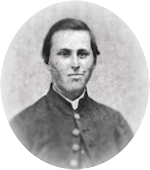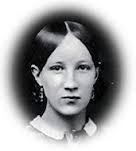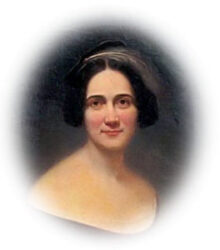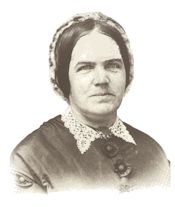June 1st.—The New York Herald quotes General Sherman as saying, “Columbia was burned by Hampton’s sheer stupidity.” But then who burned everything on the way in Sherman’s march to Columbia, and in the line of march Sherman took after leaving Columbia? We came, for three days of travel, over a road that had been laid bare by Sherman’s torches. Nothing but smoking ruins was left in Sherman’s track. That I saw with my own eyes. No living thing was left, no house for man or beast. They who burned the countryside for a belt of forty miles, did they not also burn the town? To charge that to “Hampton’s stupidity” is merely an afterthought. This Herald announces that Jeff Davis will be hanged at once, not so much for treason as for his assassination of Lincoln. “Stanton,” the Herald says, “has all the papers in his hands to convict him.”
The Yankees here say, “The black man must go as the red man has gone; this is a white man’s country.” The negroes want to run with the hare, but hunt with the hounds. They are charming in their professions to us, but declare that they are to be paid by these blessed Yankees in lands and mules for having been slaves. They were so faithful to us during the war, why should the Yankees reward them, to which the only reply is that it would be by way of punishing rebels.
Mrs. Adger[1] saw a Yankee soldier strike a woman, and she prayed God to take him in hand according to his deed. The soldier laughed in her face, swaggered off, stumbled down the steps, and then his revolver went off by the concussion and shot him dead.
The black ball is in motion. Mrs. de Saussure’s cook shook the dust off her feet and departed from her kitchen to-day—free, she said. The washerwoman is packing to go.
Scipio Africanus, the Colonel’s body-servant, is a soldierly looking black creature, fit to have delighted the eyes of old Frederick William of Prussia, who liked giants. We asked him how the Yankees came to leave him. “Oh, I told them marster couldn’t do without me nohow; and then I carried them some nice hams that they never could have found, they were hid so good.”
Eben dressed himself in his best and went at a run to meet his Yankee deliverers—so he said. At the gate he met a squad coming in. He had adorned himself with his watch and chain, like the cordage of a ship, with a handful of gaudy seals. He knew the Yankees came to rob white people, but he thought they came to save niggers. “Hand over that watch!” they said. Minus his fine watch and chain, Eben returned a sadder and a wiser man. He was soon in his shirt-sleeves, whistling at his knife-board. “Why? You here? Why did you come back so soon?” he was asked. “Well, I thought may be I better stay with ole marster that give me the watch, and not go with them that stole it.” The watch was the pride of his life. The iron had entered his soul.
Went up to my old house, “Kamschatka.” The Trapiers live there now. In those drawing-rooms where the children played Puss in Boots, where we have so often danced and sung, but never prayed before, Mr. Trapier held his prayer-meeting. I do not think I ever did as much weeping or as bitter in the same space of time. I let myself go; it did me good. I cried with a will. He prayed that we might have strength to stand up and bear our bitter disappointment, to look on our ruined homes and our desolated country and be strong. And he prayed for the man “we elected to be our ruler and guide.” We knew that they had put him in a dungeon and in chains.[2] Men watch him day and night. By orders of Andy, the bloody-minded tailor, nobody above the rank of colonel can take the benefit of the amnesty oath, nobody who owns over twenty thousand dollars, or who has assisted the Confederates. And now, ye rich men, howl, for your misery has come upon you. You are beyond the outlaw, camping outside. Howell Cobb and R. M. T. Hunter have been arrested. Our turn will come next, maybe. A Damocles sword hanging over a house does not conduce to a pleasant life.
[1] Elizabeth K. Adger, wife of the Rev. John B. Adger, D.D., of Charleston, a distinguished Presbyterian divine, at one time a missionary to Smyrna where he translated the Bible into the Armenian tongue. He was afterward and before the war a professor in the Theological Seminary at Columbia. His wife was a woman of unusual judgment and intelligence, sharing her husband’s many hardships and notable experiences in the East.
[2] Mr. Davis, while encamped near Irwinsville, Ga., had been captured on May 10th by a body of Federal cavalry under Lieutenant-Colonel Pritchard. He was taken to Fortress Monroe and confined there for two years, his release being effected on May 13, 1867, when he was admitted to bail in the sum of $100,000, the first name on his bail-bond being that of Horace Greeley.






